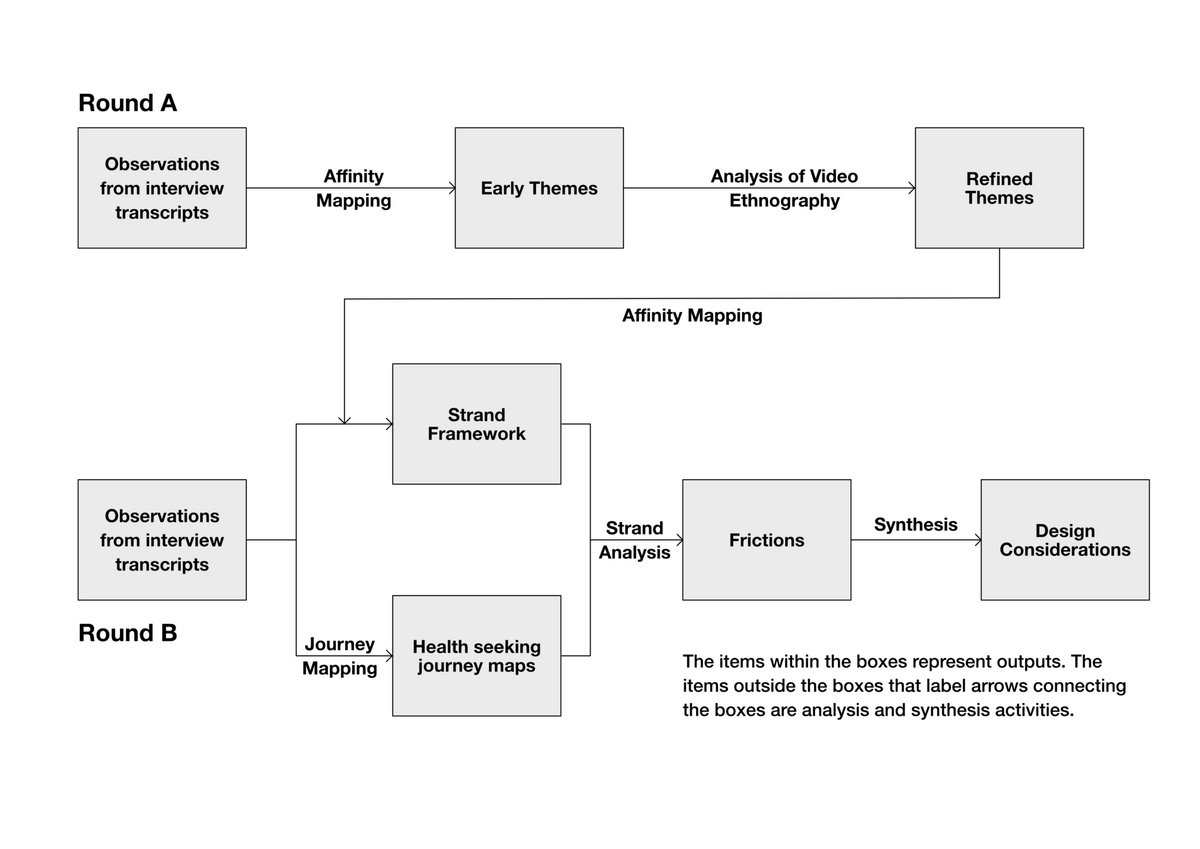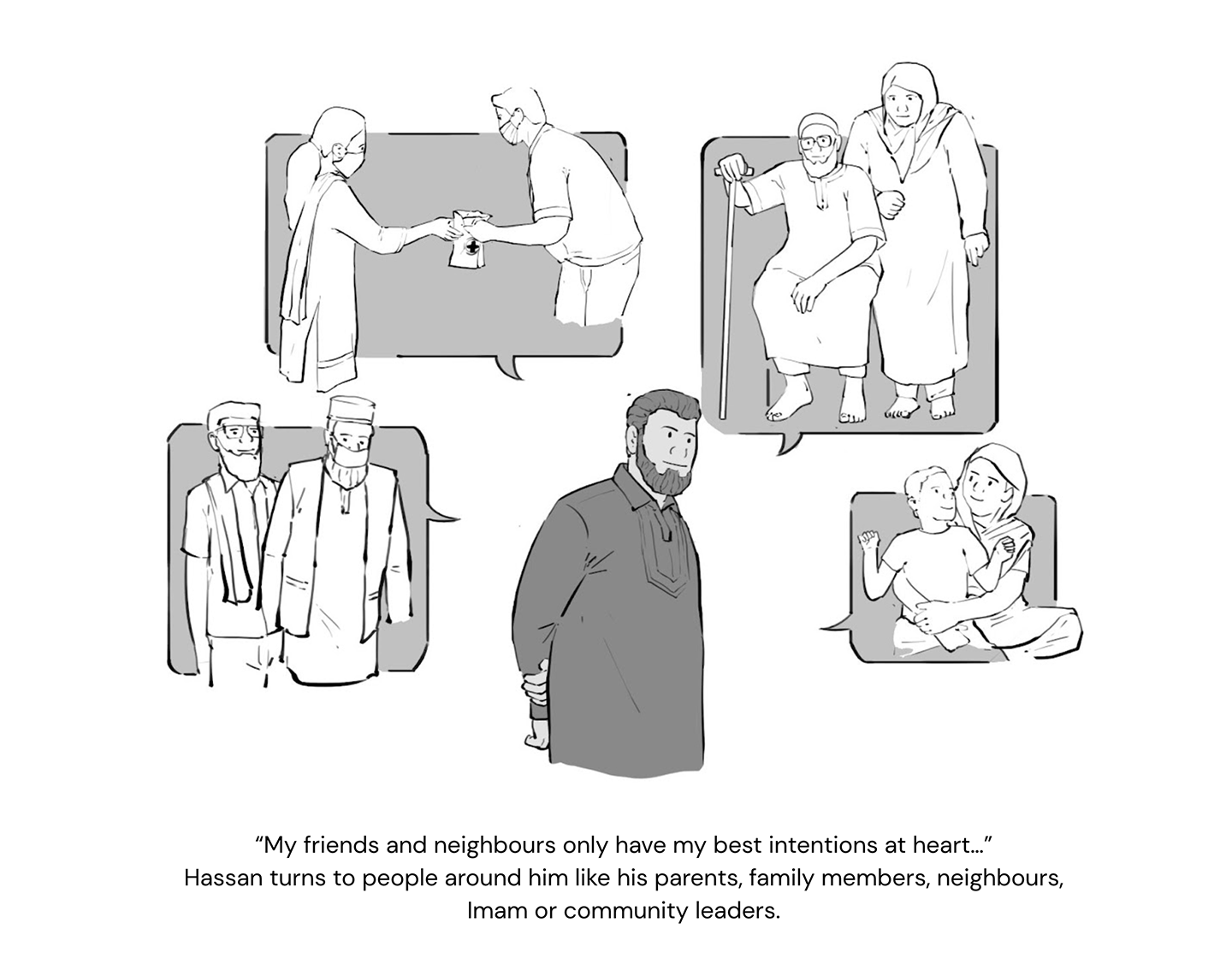Process
A process rooted in design thinking and ethnographic approaches
Phases & Process
Primary research was conducted in three phases across Bangladesh and South Africa between Jan 2021 — October 2021.

In-country partners across both countries led on ground foundational research: JPG School of Public Health, BRAC University in Bangladesh and Aurum and Culture Foundry in South Africa.HCD tools, probes and approaches accompanied the immersion guides to support the research inquiries. All of these guides were localized with guidance from in-country research partners. They were also provided orientation on HCD tools by project partners, Matchboxology and Quicksand.
As this round of research was conducted during the first wave of COVID-19, a significant part of the inquiry focused on understanding healthcare experiences during the peak of the pandemic, especially during lockdowns imposed by local and central governments. Apart from this, our inquiry focused on these broad areas:
-
Understanding what “health” and “healthcare” mean for our participants
-
Discovering how and where participants seek care including non-formal avenues such as traditional healing
-
Mapping health seeking journeys of participants, and how they have changed during the pandemic
-
Identifying the influencer ecosystem around individuals, which shapes perception of their own health and public health initiatives and directives
Following foundational research, the teams conducted ethnography across the two locations under the guidance of the team at Ipsos MORI. This video ethnographic research was conducted to build on the findings from the foundational round of the project’s emerging themes and areas of interest. This phase also lent texture and depth to the overall research by providing valuable socio-cultural context to the overall themes.
Following the ethnography, research immersions was conducted across South Africa and Bangladesh between Sept-Oct 2021. This round was designed to build on the learnings from the foundational research, fill gaps in our research, and most importantly, dive deeper into the life histories and care journeys of health seekers — with the aim of arriving at core principles of resilience, and opportunities of change within health systems.
Across both countries, this round of immersions was intended as a more focused and detailed inquiry around early themes already identified and prioritized in the previous two rounds. A smaller number of participants were selected for this round and the interviews were significantly longer and in-depth.
As in the first round of research, our inquiry in this round also included the use of design probes. Two significant tools we used extensively were – a healthcare journey mapping tool and a set of illustrated scenarios (Figure 2). Both tools were useful in capturing detailed health seeking journeys, whilst engaging with complex and sensitive topics with our participants.
Apart from in-depth interviews with seekers and providers, and focused group discussions with providers, this round also included a couple of observation techniques including Fly on the Wall, which researchers used to observe the goings-on in healthcare facilities and pharmacies and Shadowing, where researchers accompanied Community Health Workers to better understand their daily routines and document elements of their care-provision within the communities they operated in.

Note on Research during COVID-19 §
Our research was conducted amidst waves of COVID-19 with in-country partners in both Bangladesh and South Africa. This helped us ensure our research approach was always mindful of location-specific COVID-19 guidelines and community realities.